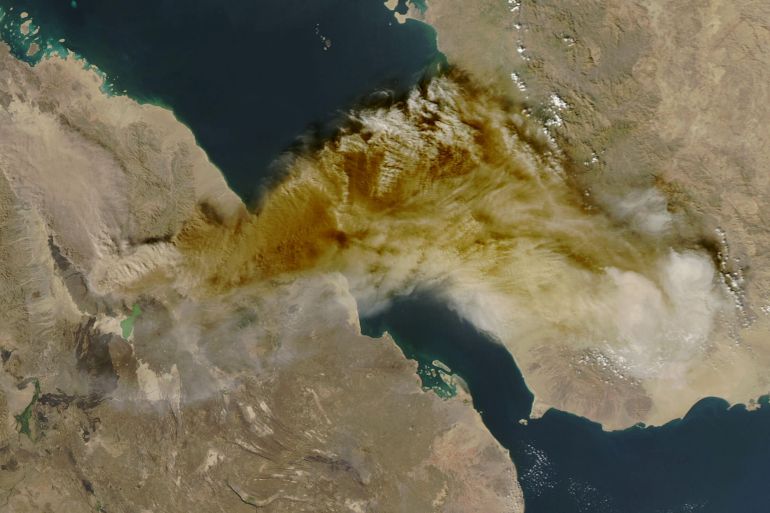Ethiopian volcano erupts after lying dormant for 12,000 years
No casualties reported, but local resident of Afar region says impact of eruption ‘felt like a sudden bomb had been thrown’.

By News Agencies
Published On 24 Nov 202524 Nov 2025
Save
A long-dormant volcano in northern Ethiopia has erupted, sending plumes of ash across the Red Sea towards Yemen and Oman.
The Hayli Gubbi volcano in the Afar region of Ethiopia, located about 800 kilometres (500 miles) northeast of Addis Ababa, erupted for several hours on Sunday morning, leaving the nearby village of Afdera covered in ash.
Recommended Stories
list of 3 itemsend of list
There were no casualties from the eruption, which sent thick plumes of smoke up to 14km (nine miles) into the sky, sending ash clouds to Yemen, Oman, India, and northern Pakistan, according to the Toulouse Volcanic Ash Advisory Centre (VAAC) in France.
Ahmed Abdela, a resident of the Afar region, said it “felt like a sudden bomb had been thrown”. Many people who had been heading to the Danakil desert, a local tourist attraction, were left stranded in ash-covered Afdera on Monday, he said.
Mohammed Seid, a local administrator, said there were no casualties, but the eruption could have economic implications for the local community of livestock herders.

“While no human lives and livestock have been lost so far, many villages have been covered in ash, and as a result, their animals have little to eat,” he said.
The volcano, which rises about 500 metres in altitude, sits within the Rift Valley, a zone of intense geological activity where two tectonic plates meet.
The Smithsonian Institution’s Global Volcanism Program said Hayli Gubbi has had no known eruptions during the current geological epoch, which experts know as the Holocene.
Advertisement
The Holocene began approximately 12,000 years ago at the end of the last Ice Age.
Afar authorities have not yet reported casualties.
